I will discuss the Best Decentralized Perpetuals Exchanges, focusing on the emerging hybrid models that integrate the convenience and speed of centralized trading with the security and transparency of decentralized finance.
- What is Decentralized Perpetuals Exchanges?
- How To Choose Decentralized Perpetuals Exchanges
- Key Point & Best Decentralized Perpetuals Exchanges List
- 1.Hyperliquid
- 2.ApeX
- 3.Drift Protocol
- 4.dYdX (v4)
- 5.GMX
- 6.Level Finance
- 7.Kwenta
- 8.MUX Protocol
- 9.Perpetual Protocol (v2)
- 10.Helix (Injective)
- Pros & Cons Best Decentralized Perpetuals Exchanges
- Conclusion
- FAQ
These exchanges offer the unparalleled advantages of permitting users to trade perpetual contracts with leverage while maintaining self-custody of assets and gaining access to a truly global market without the need for intermediaries. We will emphasize notable attributes, innovations, and advantages of each leading platform.
What is Decentralized Perpetuals Exchanges?
Decentralized perpetual exchanges are blockchain-based trading platforms that facilitate the trading of perpetual futures contracts in a trustless manner. Unlike conventional futures contracts, perpetuals do not have a set expiry date, allowing for perpetual trading on leverage.
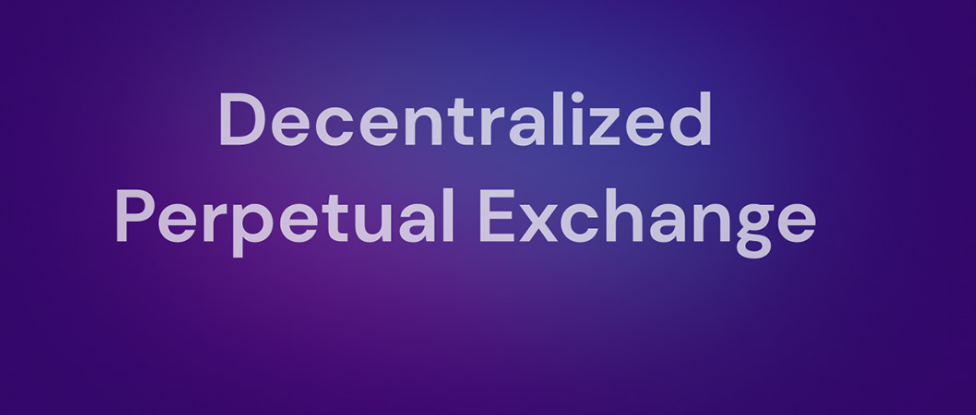
These exchanges are built on smart contracts ensuring transparency, security, and self-custody of the assets. Instead of centralized order books, traders access decentralized liquidity pools, thus minimizing counterparty risks. Due to the lack of KYC requirements, users retain privacy which, alongside access to global markets, makes decentralized perpetuals exchanges a major innovation in decentralized finance (DeFi).
How To Choose Decentralized Perpetuals Exchanges
Below are important items to remember when choosing a decentralized perpetual exchange:
Security & Audits – Look at the perpetual exchange security record and reputation. Also check thier smart contracts security audits.
Liquidity & Volume – Higher numbers aid smooth trades and decrease slippage.
Supported Assets – Take the exchanges that have the cryptocurrencies with the trading pairs you want.
Fees & Funding Rates – Examine the trading fee, funding fee, and any other possible covert fee.
Leverage Options – Make sure the leverage granularity aligns with your trading plan.
User Experience – Make sure the interface is straightforward, speedy, and intuitive.
Decentralization Level – Look for minimal KYC and a focus on self custodial trading.
Key Point & Best Decentralized Perpetuals Exchanges List
| Exchange | Key Point Highlight |
|---|---|
| Hyperliquid | High-performance on-chain order book with deep liquidity and low latency trading. |
| ApeX | Non-custodial DEX offering customizable perpetual contracts with DAO governance. |
| Drift Protocol | Solana-based exchange featuring dynamic liquidity and cross-margin trading. |
| dYdX (v4) | Fully decentralized order book model with low fees and strong institutional liquidity. |
| GMX | Popular Arbitrum/AVAX DEX with real yield for liquidity providers and low slippage. |
| Level Finance | Multi-tiered risk tranches for LPs with advanced perpetual futures trading options. |
| Kwenta | Built on Optimism, supports synthetic assets and high-leverage perpetual contracts. |
| MUX Protocol | Aggregates liquidity from multiple DEXs to offer efficient leveraged trading. |
| Perpetual Protocol v2 | Uses virtual AMM (vAMM) model for decentralized perpetuals with on-chain settlement. |
| Helix (Injective) | cross-chain trading with zero gas fees for users. |
1.Hyperliquid
Hyperliquid is regarded as one of the best decentralized perpetuals exchanges due to its remarkable speed, deep liquidity, and advanced on-chain order book system which merges the benefits of centralized and decentralized trading. Unlike most AMM-based platforms, Hyperliquid ensures execution on the order of microseconds.
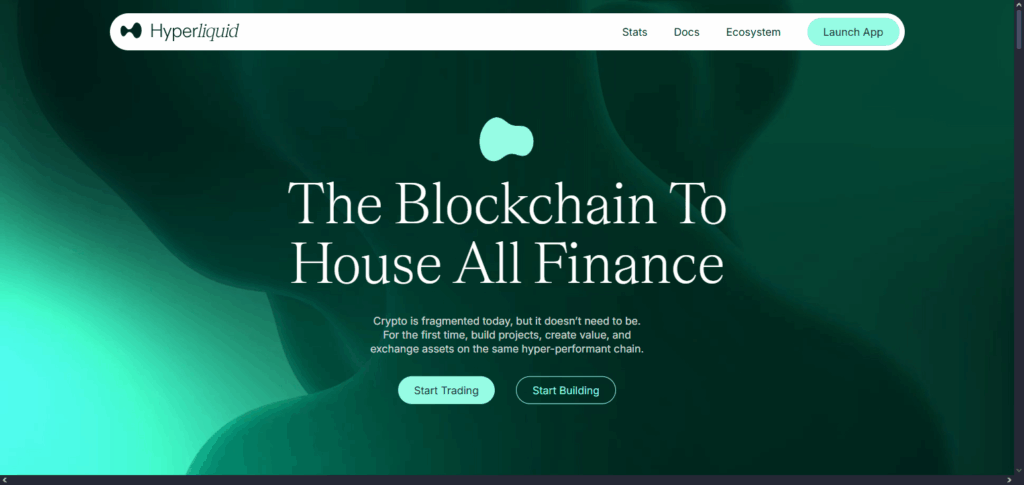
This efficiency is critical for professional traders. Hyperliquid’s main competitive advantage is the Orderbook model which allows the exchange to operate with CEX-like speed and liquidity while honoring DeFi’s self-custodial, permissionless, and transparent nature. The combination of speed, security, and decentralization differentiates Hyperliquid in the ecosystem of perpetuals trading.
2.ApeX
ApeX is considered one of the leading decentralized perpetuals exchanges due to its non-custodial trading and customizable perpetual contracts which provide users greater control over their strategies.
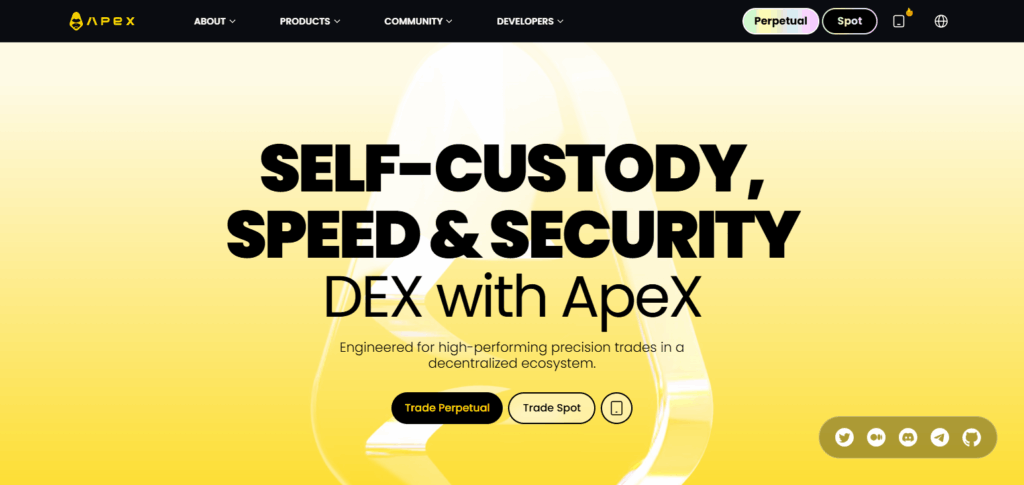
Unlike other DEXs, ApeX is DAO governed which means the community can trade and participate in the governance of the platform. Offering flexible contract creation is the most appealing feature of the platform to both retail and institutional users. ApeX provides a safe and customizable trading environment in the DeFi perpetuals space by maintaining transparency and scalability while also fostering user innovation.
3.Drift Protocol
Drift Protocol is among the best decentralized perpetuals exchanges primarily because of the near-instant and cost-effective transactions it offers on Solana’s high-speed infrastructure. As with all perpetual exchanges, Drift has to deal with the match pricing against the underlying asset even while guaranteeing adequate liquidity.

Unlike traditional models based on AMM, Drift employs a dynamic liquidity mechanism which improves execution and reduces slippage, maintaining a good price for all traders. One of Drift’s distinctive characteristics is cross-margin trading which enables users to control several positions with a single, unified collateral. Through the seamless integration of speed, sophisticated efficiency, and innovative risk control, Drift Protocol enables advanced perpetual trading in DeFi.
4.dYdX (v4)
dYdX (v4) earns its place as one of the top decentralized perpetuals exchanges as it shifts completely to an order book based system, doing away with any form of centralized infrastructure dependency.
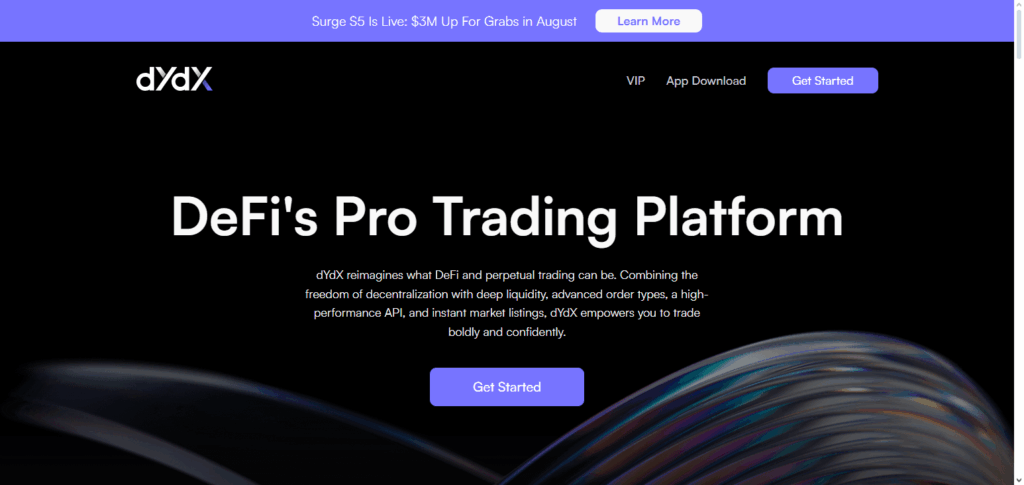
Unlike the equilibrium model based platforms, dYdX (v4) features unparalleled liquidity and exceptionally low trading fees which makes it very appealing for professional investors and traders.
Its unparalleled competitive edge is the ability to provide the efficiency of trading on a centralized exchange with the security of self-custody and full transparency. With its dYdX (v4) infrastructure that is both scalable and feature rich advanced trading, the platform is set to redefine perpetuals trading for all users.
5.GMX
GMX is considered one of the best decentralized perpetual exchanges owing to the low-slippage trades facilitated through the multi-asset liquidity pool on Arbitrum and Avalanche. Rather than using the conventional order book model, GMX employs the innovative GLP liquidity model which enables traders to access aggregated liquidity while incentivizing liquidity providers with actual returns.
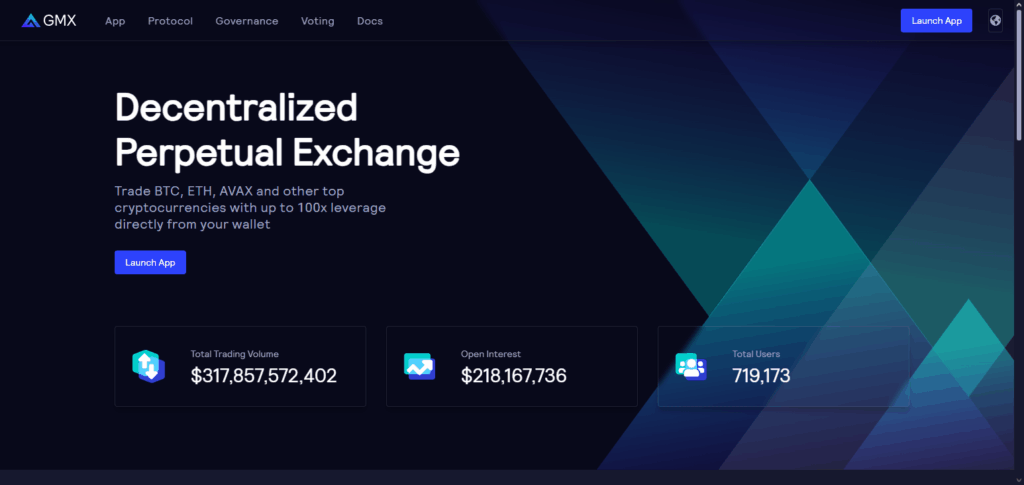
Most noteworthy is the integration of perpetual trading with incentive structures that are sustainable and aligned with the ecosystem growth, which makes GMX stand out as a balanced platform in the DeFi arena catering to traders and investors alike.
6.Level Finance
Level Finance is regarded as one of the best decentralized perpetuals exchanges due to its innovative risk management approach for liquidity providers. Differentiating from the classical DEXs, it utilizes multi-tiered risk tranches, granting LPs the option to select exposure levels that align with their risk preferences.
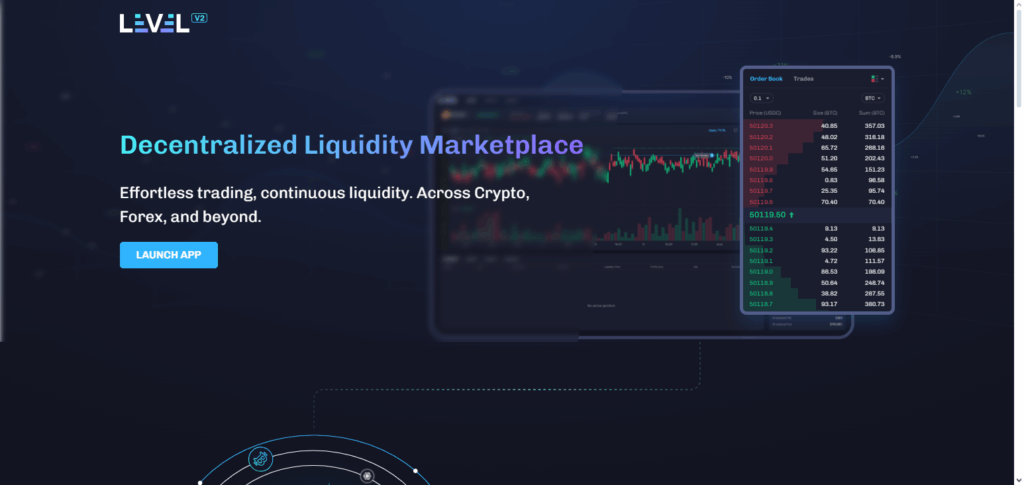
This design improves capital efficiency while providing traders with deep, stable liquidity. Level Finance fosters a stronger and more resilient perpetuals trading ecosystem in DeFi by balancing flexible LP terms with dependable filling for traders.
7.Kwenta
Kwenta is known for being one of the top decentralized perpetuals exchanges as it provides synthetic perpetual contracts with leverage of up to 50x on the Optimism Layer 2 network. From a DEX perspective, Kwenta is unique in that it offers access to a variety of synthetic equities, currencies, and cryptocurrencies.
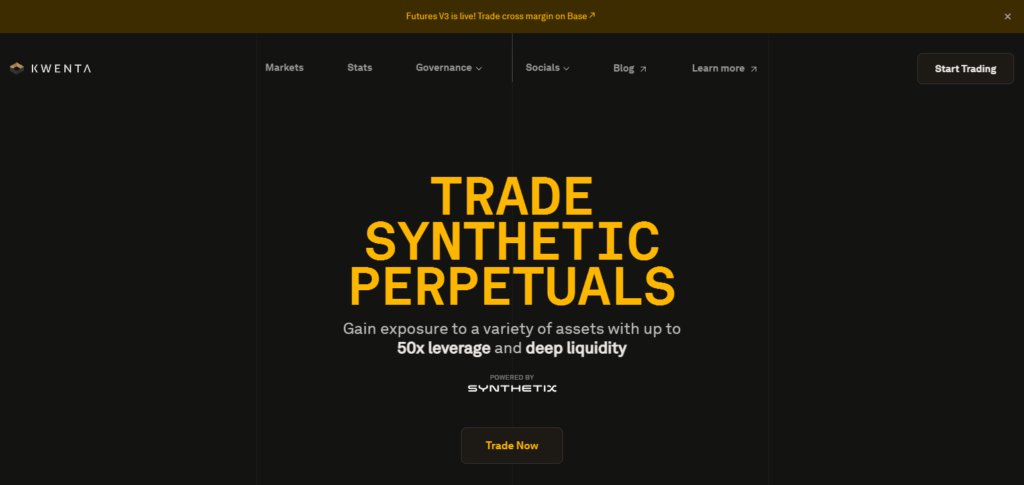
Kwenta’s distinct advantage is the ability to offer synthetic asset trading and perpetual futures trading, giving traders wider access to many markets with low-cost, scalable, decentralized finance (DeFi) trading and self-custody wallets.
8.MUX Protocol
MUX Protocol is renowned as one of the top decentralized perpetuals exchangessbecause it aggregates liquidity from various DEXs, granting traders the best execution with the least slippage. MUX enhances capital efficiency by resource pooling contrarily to single-source platforms.
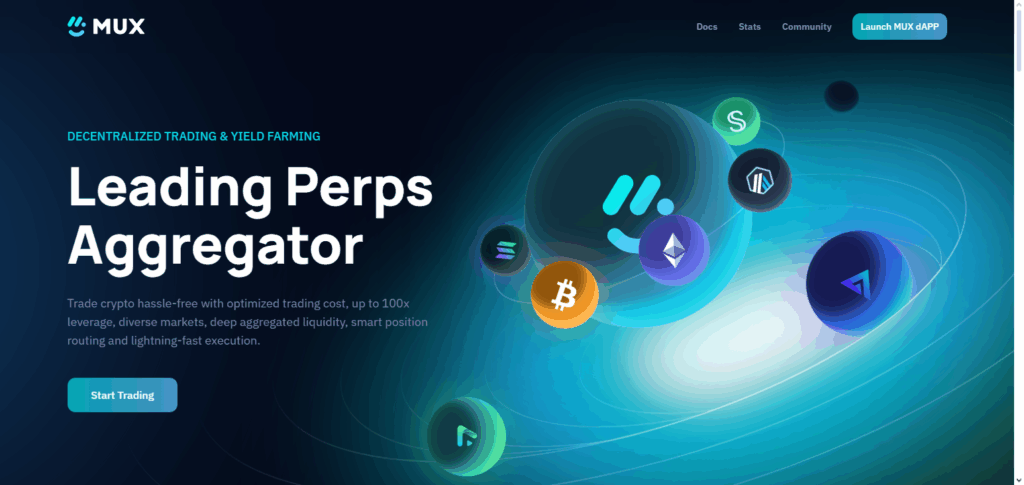
Its exceptional feature automated position routing, trades are executed to optimize pricing at the point of greatest efficiency. MUX Protocol provides enduring traders with a resourceful, efficient, and transparent solution for trade leveraging by the trading of perpetual with deep aggregated liquidity and leveraged options.
9.Perpetual Protocol (v2)
Perpetual Protocol (v2) is known as one of the best decentralized perpetuals exchanges as it pioneered the use of a virtual AMM (vAMM) model which enables fully on-chain perpetual trading with optimization of liquidity. Unlike traditional AMMs, the vAMM permits the use of leverage and hedging without the need for large liquidity pools, making trading more capital-efficient.
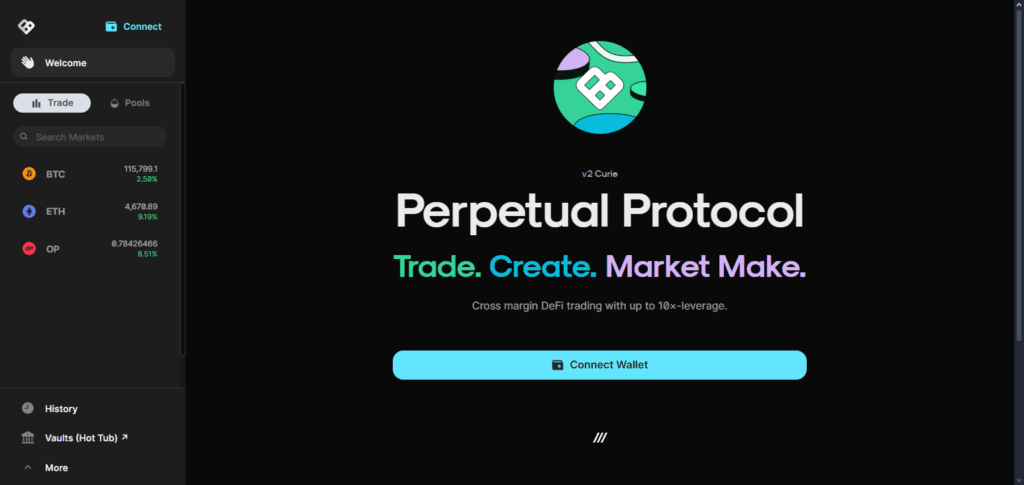
Its unique characteristic is the combination of decentralized settlement and its scalable performance which guarantees fairness and transparency. This innovation gives Perpetual Protocol (v2) a competitive advantage in the perpetuals-centered DeFi infrastructure.
10.Helix (Injective)
Helix by Injective is one of the best decentralized perpetuals exchanges because it offers fully decentralized, cross-chain trading with gasless transactions. Unlike many other platforms that are limited to one blockchain, Helix provides easy trading across numerous blockchains which offers access to deep liquidity and diverse assets.
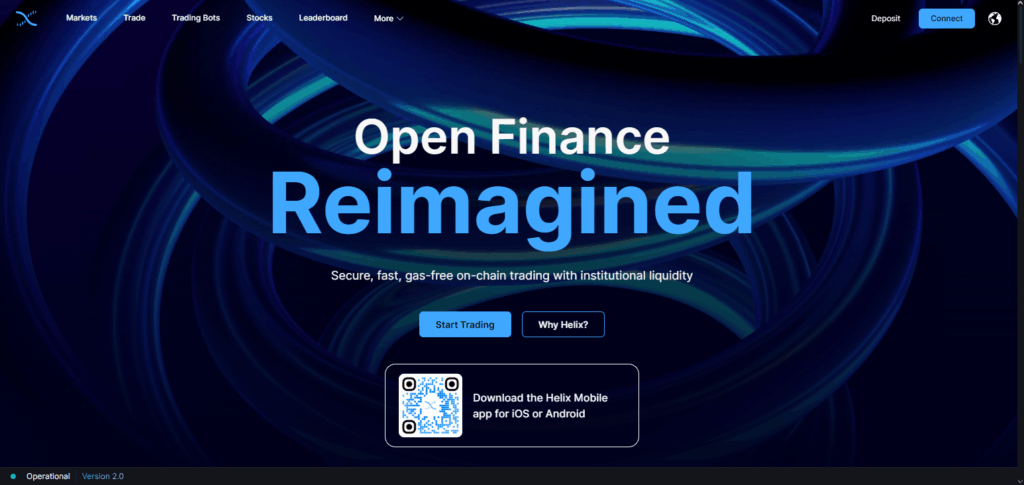
Perhaps the most distinguishable feature of Helix is the support of sophisticated order types and rapid execution on Injective’s Layer 2. Merging decentralization with efficiency and scalability, Helix stands out by offering perpetuals trading in DeFi with an unmatched simplicity and experience.
Pros & Cons Best Decentralized Perpetuals Exchanges
Pros:
- Decentralization & Self-Custody: Users have full control of funds which minimizes counterparty risk.
- Self Sovereignty: No geographic barriers or KYC requirements in many cases.
- Trust: All trades and the associated smart contracts are on-chain and verifiable.
- Optionality: Access to the perpetual contracts is easy and there is high leverage and cross-margin trading.
- Liquidity Innovation: The execution is improved with less slippage due to aggregated liquidity and AMM/vAMM models.
Cons:
- VAMM & Perpetuals Complexity: New users may have a hard time with the interfaces and concepts surrounding perpetuals or vAMMs.
- Slower CEX Decentralization: The liquidity on some DEXs can be lower in comparison to major centralized exchanges.
- Network Cost: On smaller platforms, the profitability can be affected by high slippage or network costs.
- Fractured or Limited DEX’s Support: Most DEXs do not offer professional, round-the-clock support, relying instead on community volunteers.
Conclusion
The leading decentralized perpetuals exchanges are revolutionizing the industry by blending the speed and efficacy of centralized exchanges with the transparency and security of decentralized finance (DeFi).
From GMX’s real-yield model to Hyperliquid’s high-speed order book and Tigris Finance’s fully on-chain positions, each perpetuals exchange offers unique and customizable solutions to various trading requirements.
Users are provided with self-custody, universal access, and sophisticated trading tools, including leverage and cross-margin. As more users join the ecosystem, decentralized perpetuals will form the foundational bedrock of the evolving financial ecosystem.
FAQ
What are decentralized perpetuals exchanges?
They are blockchain-based platforms that allow users to trade perpetual futures contracts without intermediaries, offering continuous trading with leverage.
How are they different from centralized exchanges?
They provide self-custody, transparency, and often minimal or no KYC, while CEXs control user funds and data.
Are decentralized perpetuals exchanges safe?
Generally, yes, but smart contract vulnerabilities and network risks exist. Always use audited platforms.








